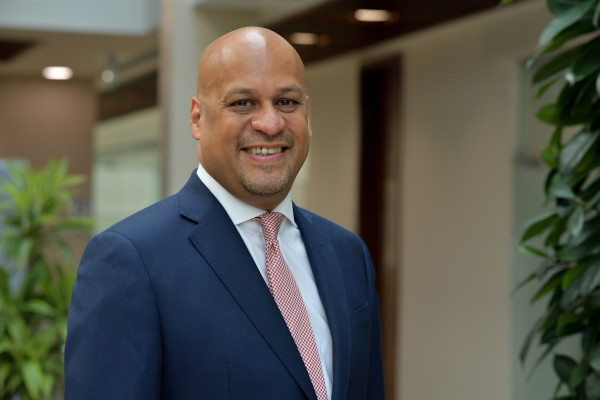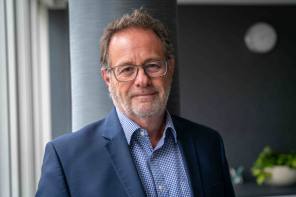

While some may reasonably expect to get a textbook when joining an adviser school, trainees at St James’s Place Academy are equipped with a virtual reality headset as part of their arsenal.
Combined with artificial intelligence, the technology is part of the advice giant’s ‘new and improved’ academy led by head Andy Payne.
“Our partners and advisers coming through the academy can run role play interview scenarios with a virtual client. They can launch into a virtual interview scenario, role play questions and test responses,” says Payne.
“And then they can switch that interview so they become the client. So they’re the recipient of all of the questioning and all of that technique, so they can see the potential impact that they’re having, role-played in front of them.”
The technology enables trainees to practise how they would deal with say, a nervous or angry client, in a virtual environment akin to video game The Sims. But artificial intelligence results in a different outcome each time.
“You feel that you’re in a room with a person, and you’re getting real reactions to body language, and also tone as well as the questions that you’re asking,” says Payne.
“You can’t game it either. So it’s not like if you say this and you don’t get the response you want, you can reset it and think, ‘I’ll do it, and then if I say this I’ll get the response that I want.’
“It is truly artificial intelligence. You’ll get a different scenario, different outcome every time you go back in, even if it’s the same base scenario. You can do this 10 times and never get the same response.”
Another change that trainees will encounter is that the academy no longer operates a geographical structure centred on the four locations of Edinburgh, Manchester, London and Solihull – the last of which Payne joined St James’s Place to open.
Payne says the four academy offices work well, but adds the classroom-style training imposed a physical cap on the numbers that could be recruited through the academy, as well as creating “significant disruption” for some people who would want to join.
“You would have to make your way into one of four offices. It would be a deterrent for some, and it would make life difficult for others.
“We’re opening the academy now across all of our 22 locations, and most significantly our 2,500 partner practices.”
As a member of the wealth manager’s inclusion and diversity steering committee, the approach aligns with Payne’s ambition for the academy to be “for all”, citing the partnership’s role to present the academy as a realistic career choice for more people than it was probably perceived in the past.
“The fact that we can deliver [the academy] through 22 locations rather than four, and also for people joining as advisers in particular – they can do this in our partner practices, sitting alongside the partners themselves, [which] means that we’ve suddenly got access to hundreds of offices,” says Payne.
“And it makes it so much easier for our new entrants... to access and also just tap into some of the expertise that sits around the company.”
Without the physical cap on recruitment numbers, the capacity to put people through the academy has now doubled to 400.
But Payne adds: “What we don’t want to do is have unwieldy cohorts where we can’t have that social interaction and cohesion. Our intakes are limited at the moment to around 20 per intake, so we’ve got capacity for around 400.
“That capacity will increase as we develop. We’ll flex the academy and the number of people that pass through the academy based on corporate need, but we’re not limiting ourselves to any specific targets.”
The Solihull academy, which Payne ran and “built from scratch” as its former head of business, brought around 40 second careerists a year as new partners into the fold. A former jockey, taxi driver and a former marine who had been equerry to a senior member of the Royal Family, were among Payne’s last intake as head of business.
What unifies them, however, are five attributes that the academy seeks in its selection process.
“A degree of resilience, and drive, is really important,” says Payne. “Personal impact you would expect, because we’re a relationship, face-to-face business. Empathy is a key component of what we look for – so the ability to empathise. And underpinning all of that is personal integrity.”
While enrolling in an adviser academy creates a deliberate career path into financial services, Payne describes his own route into the sector as something that happened “quite by chance”.
“I joined what was Midland Bank, now HSBC, as a management trainee. My rough plan at the time was a conventional route through banking.
“Just quite by chance I had an opportunity to spend a bit of time as an adviser, and thought that would be a great way of honing a new set of skills. That was about 27 years ago.
“And I’m still here now – just fell in love firstly with giving advice, and being part of that dynamic, and then running sales and development teams after that. It was a complete fluke but a happy one.”
Chloe Cheung is a features writer at FTAdviser



